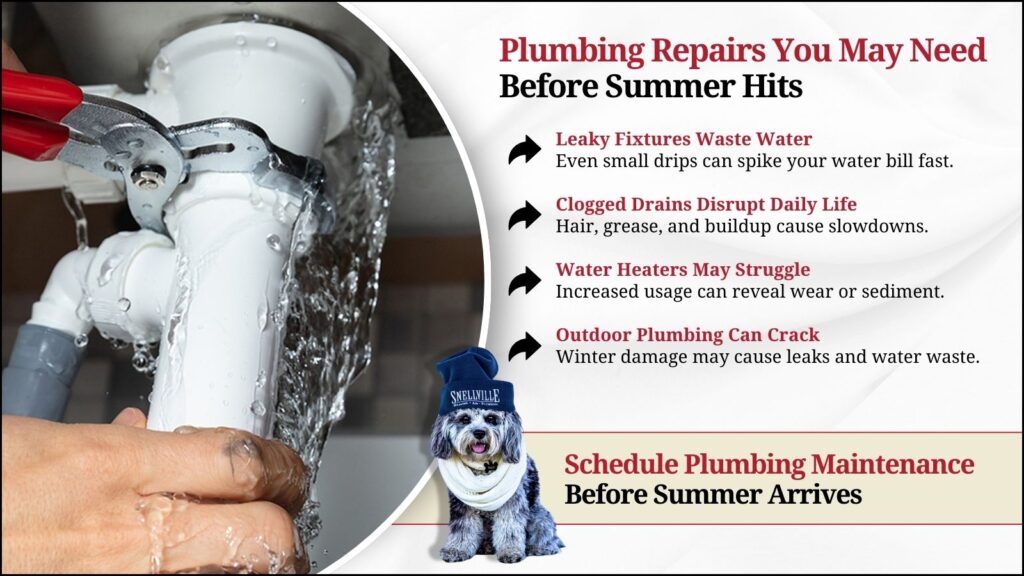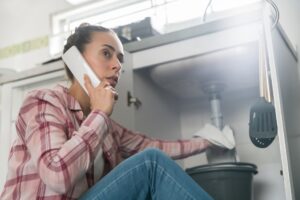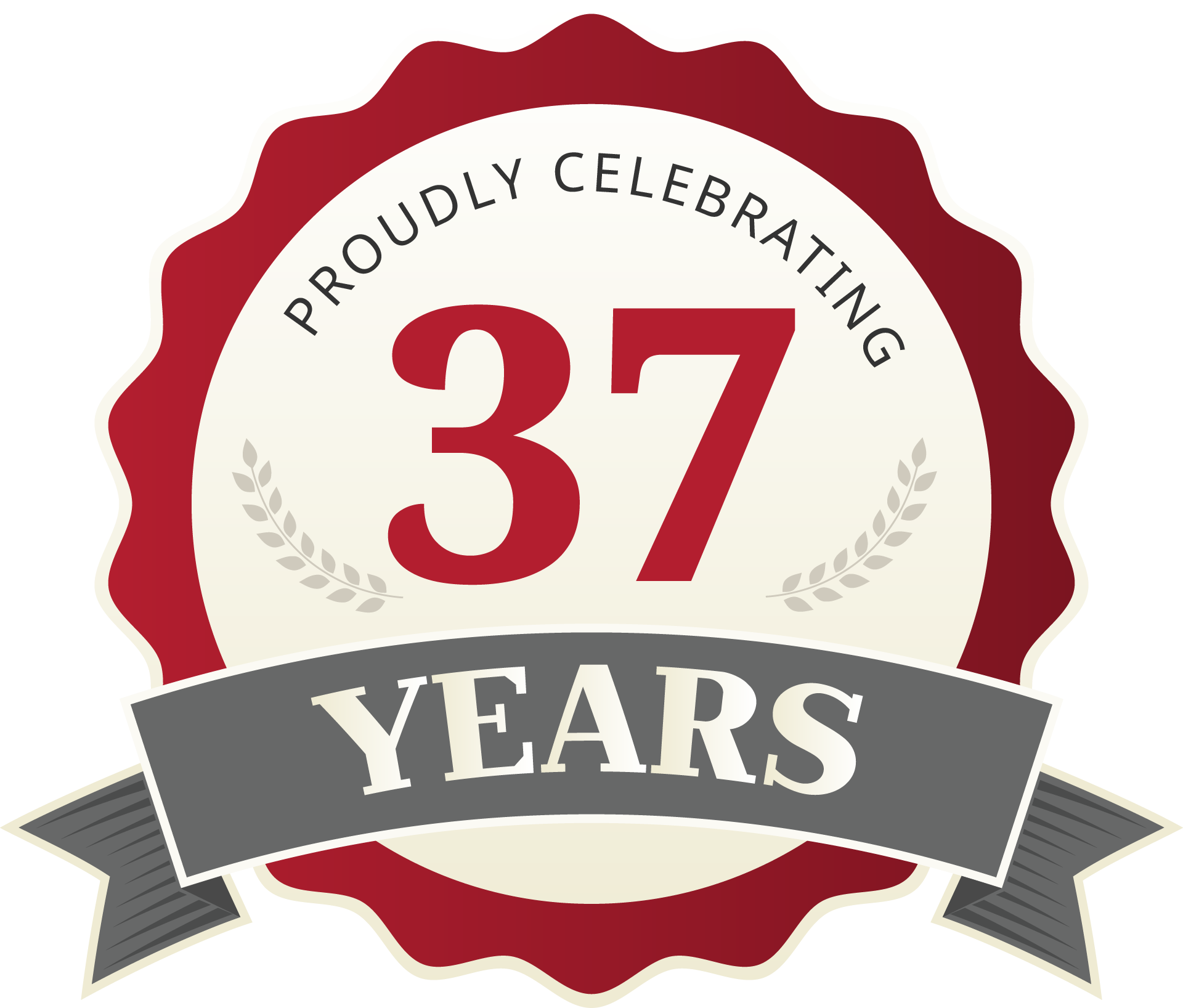As the hot Georgia summer approaches, homeowners tend to focus on air conditioning—but your plumbing system also deserves attention. With higher temperatures, more outdoor activities, and increased household water usage, summer can place extra demands on your home’s pipes, drains, and fixtures.
Without proper preparation and maintenance, minor plumbing issues can quickly turn into major headaches. We want to help you get ahead of common plumbing problems before the summer heat is in full swing. Keep reading to learn about your home’s plumbing systems, common repairs to watch for, and what you should evaluate to stay worry-free all summer long.

The Key Plumbing Systems Inside Your Home
Your plumbing system is a complex network of pipes, fixtures, and appliances, all working together to deliver fresh water, remove wastewater, and support daily activities like cooking, bathing, and cleaning. Key parts of your system include:
- Water Supply Lines: Bring fresh, potable water into your home.
- Drain and Sewer Lines: Carry wastewater safely away.
- Fixtures and Faucets: Provide access to water at sinks, tubs, showers, and outdoor spigots.
- Water Heater: Supplies hot water for bathing, cooking, and washing.
- Outdoor Plumbing: Includes sprinkler systems, hose bibs, and exterior drains.
Common Plumbing Repairs Homeowners May Face
1. Leaky Faucets and Fixtures – The constant dripping of a leaky faucet isn’t just annoying—it wastes water and raises your utility bills. Summer increases water usage, which can worsen existing leaks or reveal new ones. Repairing or replacing worn washers, seals, or fixtures can quickly solve the problem.
2. Clogged Drains – Kitchen sinks, bathroom drains, and shower drains are common trouble spots. Grease buildup, hair, soap scum, and foreign objects can clog pipes, especially with more guests and activities during summer vacation. Professional drain cleaning can clear tough blockages and prevent backups.
3. Running or Leaking Toilets – Toilets that continuously run or leak at the base are not only inefficient but can lead to water damage. Worn-out flappers, faulty valves, or seal issues often cause these problems and should be addressed promptly.
4. Water Heater Issues – Higher demand for showers, dishwashing, and laundry during summer can strain an older or inefficient water heater. Sediment buildup, corrosion, or failing components can lead to inconsistent temperatures or even complete failure. A professional inspection can determine if repair or replacement is needed.
5. Outdoor Plumbing Problems – Hose bibs, outdoor faucets, and sprinkler systems can develop leaks, cracks, or blockages—especially if they weren’t properly winterized. Inspecting these areas now helps avoid water waste and keeps your outdoor spaces functional and beautiful.
6. Sewer Line Problems – Summer rain storms combined with tree root growth can wreak havoc on underground sewer lines. Slow drains, foul odors, and lush patches of lawn could be warning signs of sewer issues that require immediate attention.
Preparing Your Plumbing for a Hot Georgia Summer
Before the temperatures climb even higher, it’s a smart idea to evaluate your plumbing system:
- Inspect fixtures and hoses: Look for signs of leaks, cracks, or corrosion.
- Test outdoor water features: Make sure sprinklers and outdoor faucets are working properly.
- Flush the water heater: Removing sediment buildup can improve efficiency and extend lifespan.
- Schedule a drain cleaning: Clear slow drains now to prevent emergencies later.
- Check for silent leaks: Monitor your water meter or call for a leak detection service if you suspect hidden plumbing issues.
Contact Snellville Heating, Air and Plumbing, where your comfort is OUR business.




